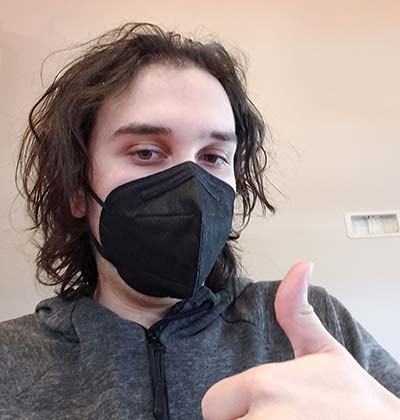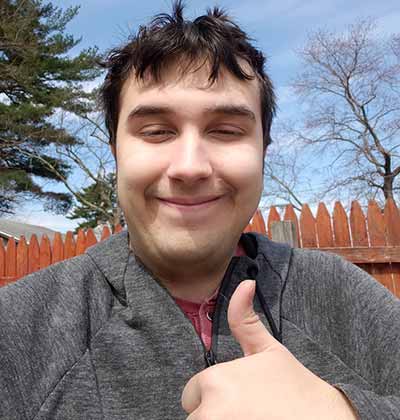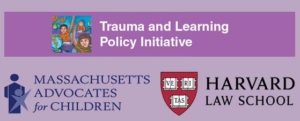My name is Chloe and I graduated from high school in 2021. Today I want to talk about how schools don’t listen to student voices enough. As a member of the LGBTQIA community and a student with Autism, I didn’t feel like my voice was listened to when I raised concerns related to those communities to my school. Too often, schools are concerned about what parents, teachers, or the community are thinking, but they don’t care that much about what students are thinking. Here are three examples of times when my school didn’t take student voices into account in ways that harmed LGBTQIA students or students with disabilities.
In high school, I had a teacher who made comments that were harmful to students who identify LGBTQIA or who have a disability. The teacher said that LGBTQIA students and students with disabilities were more “trouble” than other students. When I raised my concerns about these comments to him, he tried to silence me. In fact, the teacher responded that I was the one using harmful language. Rather than listen to me, he told me I was the one doing something wrong and that I need to word things better when I spoke, which made me very frustrated because I felt like I wasn’t being heard. And the more I tried to raise my concerns about this, the more I felt like I was being silenced. In response, my special education teacher spent extra time with me on how I should properly try to explain difficult topics. Rather than addressing the problems caused by the harmful language, they tried to make it seem like I was causing the problem by how I responded to the harmful language used. As a result of this, I wasn’t even willing to ask for help with my schoolwork because of how they reacted when I tried to raise previous concerns.
The health classes were another problem. The curriculum was very outdated in that it was not inclusive to LGBTQIA students. They were teaching outdated terminology. And the curriculum didn’t address transgender students at all. They just were following old textbooks and made no effort to update them to reflect the needs of all students in the school. It felt discriminatory in that non-LGBTQIA students had this health class that taught them most of what they needed to know, and LGBTQIA students didn’t. And I think they should really change it. But they made no effort to figure out what LGBTQIA students needed because they never asked them what they needed. Instead, they just kept doing things the same way they’ve always done them.
And finally, the school did not treat students with autism like people but instead as a problem to be dealt with. Students with autism are usually misunderstood. Since I was diagnosed at 2-3 years old, I have seen people assume that because I have autism that I am someone who is very low functioning. Because of that feeling, schools don’t usually care about what students with Autism want. They treat autism like it is something bad that must be dealt with. The therapies they promote make students with autism feel like their impulses are bad and must be suppressed. They attempt to force compliance by students with autism rather than promoting acceptance of students with autism. Through this type of treatment, they make students with autism think their thoughts and feelings are wrong and bad, as opposed to trying to design a school that works better for them. They don’t care so much about what the students with Autism need or want. In reality, they don’t treat us as people with autism, they treat us as autistic people. And when I raised those concerns to my teachers, I got turned away and shut down. I didn’t feel like anyone wanted to hear what I had to say about the topic. This made me feel misunderstood and powerless.
Listening to what students need is important because otherwise, schools simply won’t know. These are a few examples that demonstrate a much larger problem. In these examples, I spoke up about problems and was still silenced. Just because schools “listen” to students doesn’t mean they will really “hear” them. Schools need to not only make room for students to share what they need, but they also need to actually make changes based on what the students say rather than silencing them. And although these problems are particularly bad for students with disabilities and LGBTQIA students, schools don’t listen enough to students overall. Thank you.





